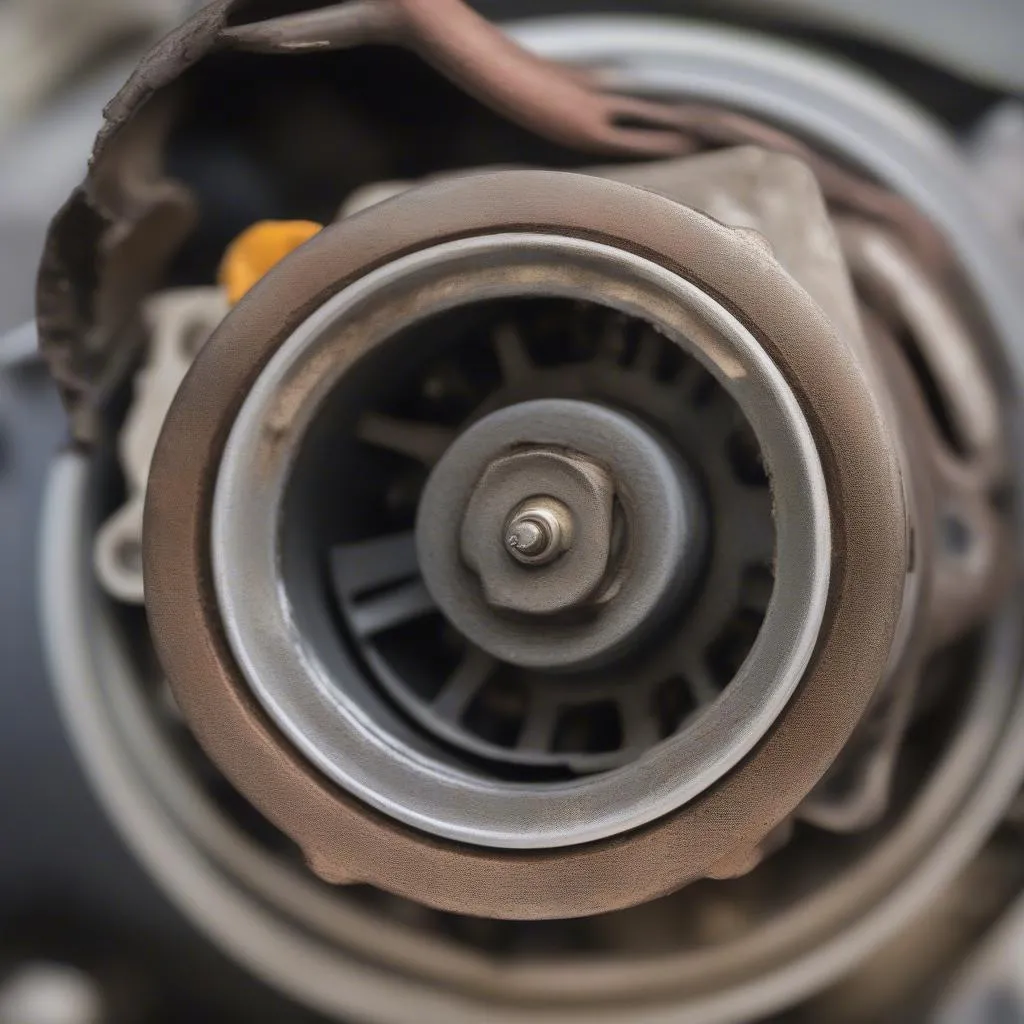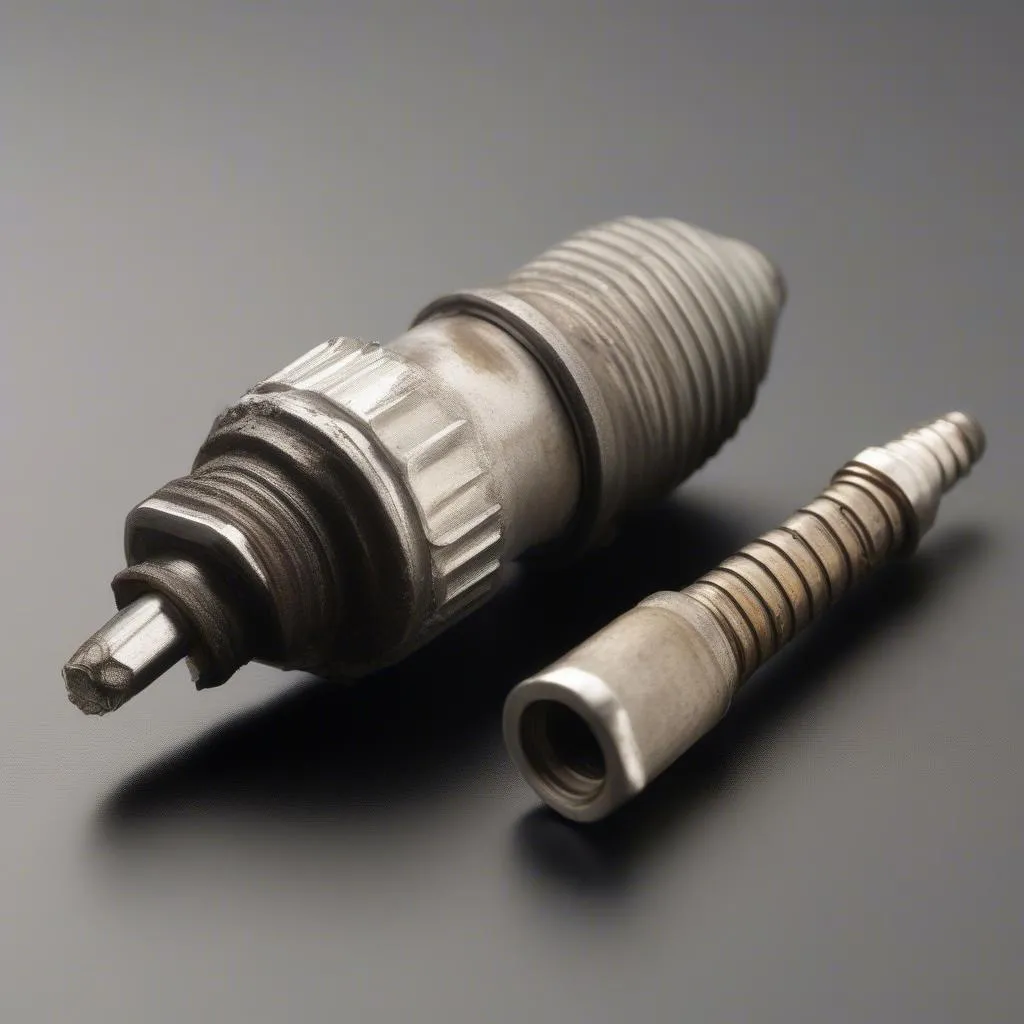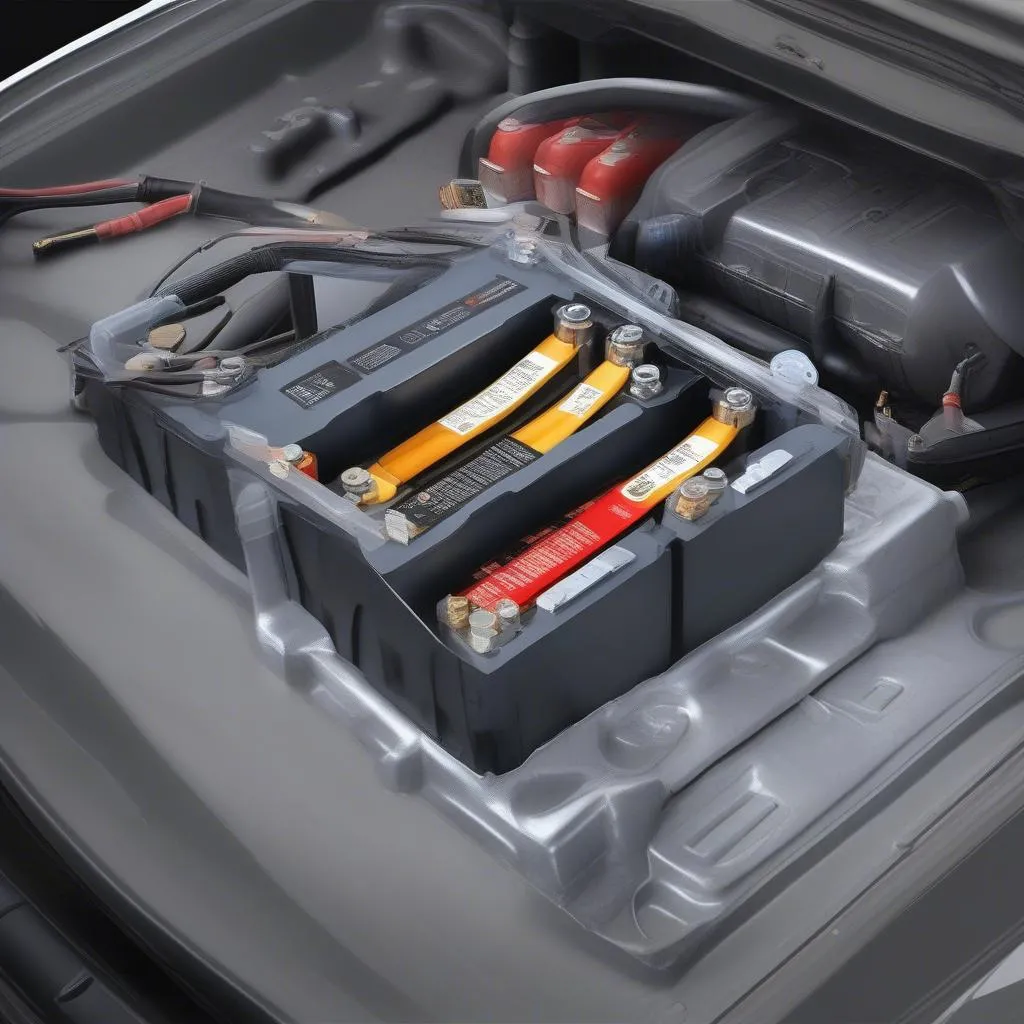“Ugh, not again!” you groan as your car sputters and strains, barely managing a weak cough instead of a confident roar. We’ve all been there, that heart-sinking moment when your trusty vehicle decides to throw a tantrum right when you need it the most. But before you start panicking, take a deep breath. Understanding why your car struggles to start is the first step to getting you back on the road.
What Does it Mean When Your Car Struggles to Start?
Let’s break it down. “Struggling to start” can sound different to different people. Are you dealing with a sluggish crank, a rapid clicking sound, or complete silence when you turn the key?
From a mechanic’s perspective, a car that struggles to start points towards a failure somewhere in the starting system. This could be anything from a drained battery in your Toyota Corolla to a failing starter motor in your Ford F-150.
Common Culprits Behind a Stubborn Start
Now, let’s shine a light on the usual suspects when your car puts up a fight at start-up:
1. Dead or Dying Battery
This is the most common culprit. Like a tired marathon runner, your battery eventually loses its charge, especially in colder climates like Chicago winters. Without enough juice to power the starter motor, your engine won’t turn over.
Symptoms: Dim headlights, slow cranking, clicking sounds.
Solution: Jump-start your car or replace the battery if it’s nearing the end of its life.
2. Faulty Starter Motor
The starter motor is like the muscle that gets your engine going. When you turn the key, it engages with the engine’s flywheel, setting it in motion. A failing starter motor might make grinding noises or simply fail to crank the engine.
Symptoms: Clicking noises when turning the key, grinding sounds, engine doesn’t crank.
Solution: Have a qualified mechanic inspect and potentially replace the starter motor.
Here’s what a failing starter motor might look like:  Faulty Starter Motor
Faulty Starter Motor
3. Fuel System Issues
Think of fuel as the food that feeds your engine. If the fuel pump isn’t delivering enough fuel, or if the fuel filter is clogged, your engine will struggle to start, especially after sitting idle for a while.
Symptoms: Engine cranks but doesn’t start, sputtering engine, sudden stalling.
Solution: Check the fuel pump, fuel filter, and fuel lines for any issues.
4. Ignition System Problems
Your car’s ignition system is like the nervous system, sending the spark that ignites the fuel. Worn-out spark plugs, faulty ignition coils, or a malfunctioning crankshaft position sensor can all disrupt this process.
Symptoms: Engine cranks but doesn’t start, misfires, rough idling.
Solution: Inspect and replace faulty spark plugs, ignition coils, or the crankshaft position sensor.
Here’s a visual representation of a worn-out spark plug:  Worn-out Spark Plug
Worn-out Spark Plug
5. Other Potential Issues
While less common, other problems like a bad alternator, vacuum leaks, or even extreme temperatures can also lead to starting difficulties.
What to Do When Your Car Struggles to Start
- Don’t Panic: Take a moment to assess the situation.
- Check the Battery: If you suspect a dead battery, try jump-starting your car.
- Listen Closely: Pay attention to any unusual sounds when you try to start the engine. Clicking, grinding, or whining sounds can offer valuable clues.
- Check for Obvious Issues: Ensure the gear shifter is in “Park” or “Neutral,” and make sure the steering wheel isn’t locked.
- Don’t Force It: Repeatedly trying to start a stubborn engine can cause further damage.
- Seek Professional Help: If you can’t pinpoint the problem, it’s best to call a tow truck and consult a trusted mechanic.
Common Questions About Car Starting Problems
Q: Can a bad alternator cause starting problems?
A: While a bad alternator won’t directly prevent your car from starting, it can drain the battery over time, leading to starting issues later on.
Q: Why does my car only struggle to start in the morning?
A: This could be a sign of a failing starter motor or a fuel system issue, as these components tend to cool down overnight, making them more prone to problems in the morning.
Q: How often should I replace my car battery?
A: On average, car batteries last between 3 to 5 years. However, factors like climate and driving habits can affect their lifespan.
Here’s an illustration of a car battery’s internal components:  Car Battery Internal Components
Car Battery Internal Components
Still Struggling to Diagnose the Problem?
We understand that car trouble can be frustrating. That’s why we’re here to help! Our team of expert mechanics is just a message away. Contact us on WhatsApp at +84767531508 for assistance with diagnostic tools and troubleshooting your car starting issues. We offer 24/7 support to get you back on the road as quickly as possible.
Keep Your Engine Running Smoothly
Remember, regular maintenance is key to preventing car starting problems. Keep up with your car’s scheduled service appointments, including battery checks, starter inspections, and fuel system cleaning. A little preventative care goes a long way in ensuring your car starts reliably every time.
Need more help with car starting problems? Check out these articles:
- No Start Hard Start Condition Checked
- Starter vs. Alternator Problems
- Car Won’t Turn Over But Lights Come On
We hope this comprehensive guide has shed light on why your car might be struggling to start. Remember, a little knowledge and prompt action can save you time, money, and a whole lot of frustration.